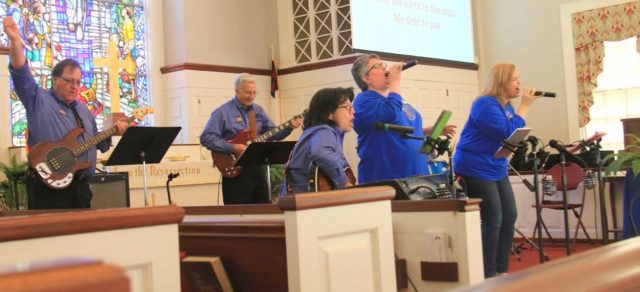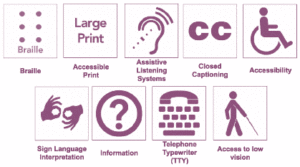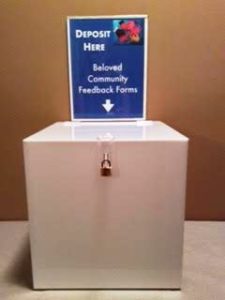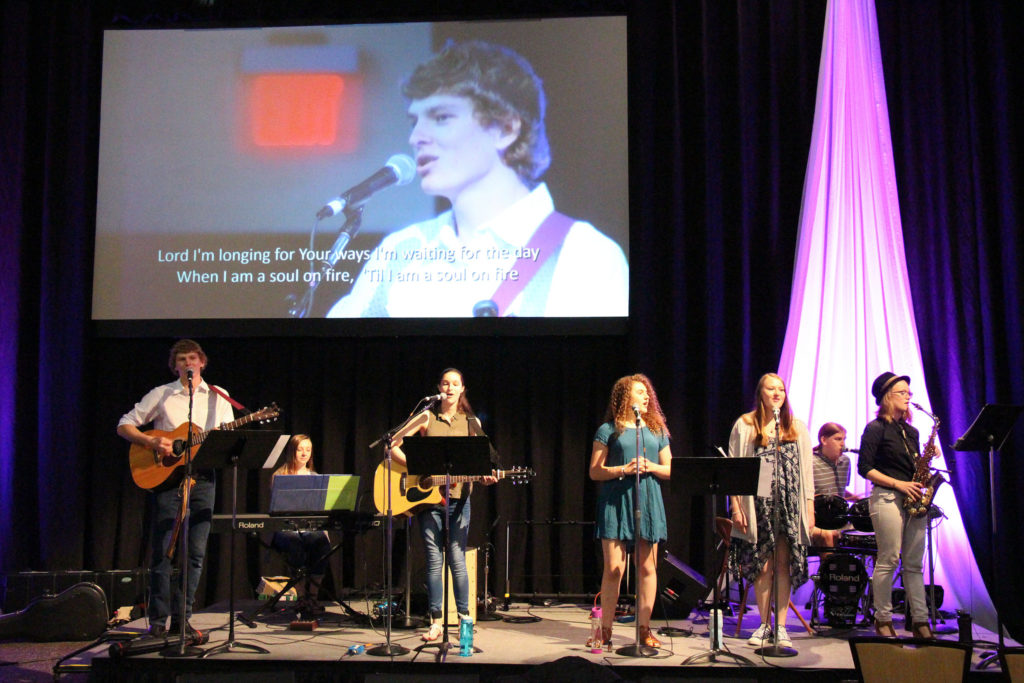
AC2017 will feature musical variety
The Annual Conference Worship Planning Team will offer a creative, intergenerational mix of musical styles–from traditional hymns played on the organ to praise songs by adult and youth bands–during conference session gathering times this week. Talented, generous musicians will play for us as members gather, fellowship, take their seats and and prepare to resume the session agenda.
 David Bryant (right), Director of Music Ministries at First UMC Phoenixville, returns as our chief Conference Musician, a role he also played last year. David has taught music history and piano at Eastern University but leaves this summer for a new teaching position in the United Kingdom. The Magna Cum Laude graduate from the Royal Scottish Academy of Music and Drama in Glasgow, Scotland, will become a Senior Lecturer in Musical Theatre at the University of Wolverhampton, in Birmingham, England, where he plans also to complete his PhD in musicology (opera) and composition.
David Bryant (right), Director of Music Ministries at First UMC Phoenixville, returns as our chief Conference Musician, a role he also played last year. David has taught music history and piano at Eastern University but leaves this summer for a new teaching position in the United Kingdom. The Magna Cum Laude graduate from the Royal Scottish Academy of Music and Drama in Glasgow, Scotland, will become a Senior Lecturer in Musical Theatre at the University of Wolverhampton, in Birmingham, England, where he plans also to complete his PhD in musicology (opera) and composition.
Bryant will play hymns and songs on the organ on Thursday afternoon and Friday morning. Other musicians performing will be:
Thursday evening: The Rev. Tom Robinson, pastor of Quakertown UMC, guitar with vocals.
Friday Afternoon: #JesusTrending (Hopewell UMC Youth Praise Band)
Saturday Morning: Christ UMC Fairless Hills Praise Band
Saturday Afternoon: Lima UMC Praise Band
Members to help monitor for inclusiveness
Each year we count on key conference committees to monitor Annual Conference for signs of racial, gender and disability inclusiveness, or the lack thereof, and to report their findings to the plenary session daily. This year they will do it differently, inviting all to join in “Building the Beloved Community,” as they call it, using not bricks but comment cards to document and share what they see, hear and feel.
The collaborative committees will call on conference members to observe and share in writing what they experience and witness in regards to inclusion and mutual respect.
 When the session opens the Rev. Alicia Julia-Stanley, Religion and Race (CORR) co-chairwoman, Barbara Skarbowski, Disabilities Ministries chairwoman, and the Rev. Andrea Haldeman, Status and Role of Women (COSROW) chairwoman, will explain inclusiveness values and the popular RESPECT guidelines, adapted from Eric Law’s teaching. They will invite members to observe how and when the session seems inclusive or not and then record their observations and feelings on two-sided, comment cards placed on each table.
When the session opens the Rev. Alicia Julia-Stanley, Religion and Race (CORR) co-chairwoman, Barbara Skarbowski, Disabilities Ministries chairwoman, and the Rev. Andrea Haldeman, Status and Role of Women (COSROW) chairwoman, will explain inclusiveness values and the popular RESPECT guidelines, adapted from Eric Law’s teaching. They will invite members to observe how and when the session seems inclusive or not and then record their observations and feelings on two-sided, comment cards placed on each table.
One side of each card will solicit a Praise Report, asking, “When did you experience or witness success— equity, diverse representation, wholehearted acceptance and grace?” The other side will ask for a Concern Report: “When did you experience or witness marginalization, contempt, insult or bigotry?
Respondents may give their contact information to discuss their praise or concerns further. They will be asked to drop their completed cards into one of three marked collection boxes. Two boxes will be located in the assembly hall and one at the Religion and Race display table in the exhibits section.
The Monitoring Team will review the cards nightly and share selected comments or learnings with the plenary body each morning, especially feedback that needs a response. Otherwise, they will prepare inclusiveness monitoring reports to share with the conference after they meet during the summer.
“The traditional monitoring reports we do every year have become counter-productive, especially during voting periods,” said the Rev. Alicia Julia-Stanley, who co-chairs CORR. “We will still monitor the session for inclusiveness but differently this time as an experiment.”
 RESPECTFUL COMMUNICATION GUIDELINES
RESPECTFUL COMMUNICATION GUIDELINES
R- Accept Responsibility for what you say and feel without blaming others.
E- Listen with an Empathetic heart.
S- Be Sensitive to differences in communication styles.
P- Ponder on what you hear and feel before you speak.
(There’s a reason we have 2 ears and 1 mouth)
E- Examine your own assumptions and perceptions.
C- Keep Confidentiality.
T- Trust ambiguity. We are not here to debate who is right or who is wrong.
Adapted from Eric Law’s Work
Disabled members can find helpful hospitality
Here is what the Disability Committee will be doing this year to make Annual Conference more accessible to people who experience disability:
- Extra Handicapped Parking Spaces
- CART (Communication Access Real Time translation) or ‘Captioning’ for hard of hearing.
- Sign Language interpretation
- A ramp for easier access to the stage
- Large-print materials available at the Disability Committee table just outside the plenary area in Hall A.
- Large-print daily food menus (on display at the Disability table)
- Audio headsets available (See Carol Stevens, ASL interpreter.)
- Reserved aisle seating for handicapped persons (Several aisle seats will be reserved for people using walkers, wheelchairs, canes, or who have mobility difficulties.)
- Assistance with carrying food trays at mealtimes.
Please listen for the announcement about mealtime assistance from the Disability Committee. Anyone who needs help carrying their food trays should stop by the Disability Table (recognizable by the giant black and white flag) to be partnered with a mealtime volunteer. They will make their way to the food lines together. People may keep the same partner for the entire conference, or stop by just before each meal and ask for a mealtime partner.
—Barbara Skarbowski, Deaconess, Disability Committee Chair

